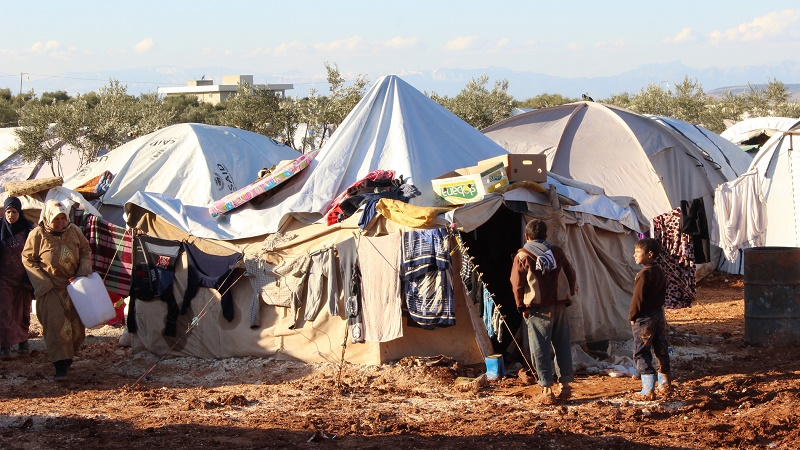Ban Ki-moon has issued a bold challenge to leaders at the World Humanitarian Summit in Istanbul.
The UN secretary general is calling for concrete actions and commitments to advance his five responsibilities for addressing the emerging humanitarian crises of our generation.
The responsibilities are:
- Prevent and end conflict,
- Respect the rules of war,
- Leave no one behind,
- Work differently to end need, and
- Invest in humanity.
These responsibilities capture some of our highest aspirations as a global community and are rightly at the center of our discussions here in Istanbul.
Comment: Climate-related impacts are biting – but who will pay the bill?
I would like to issue my own challenge. I challenge all of the leaders to keep these five core responsibilities at the center of our discussions in all international forums. These responsibilities are simply too important for us to forget the moment we board our flights back home.
Humanitarian issues cannot be divorced from the broader social, economic, political, and environmental context in which they arise.
In most cases, the crises we face are of human origin – the result of deliberate policy choices. They are the products of the global economic and security systems crafted over many years. And these systems can be changed – if we want it to be.
It comes down to governance, specifically in three areas – environmental governance, economic governance, and security governance. Shortcomings in these areas are at the root of the humanitarian challenges faced by vulnerable countries and communities around the world.
Report: Climate change could make growing these crops in African regions impossible
Our breakdown in global environmental governance is most apparent in our collective failure to reduce greenhouse gas emissions. Climate change represents the single biggest threat to the most vulnerable. Adaptation measures demand an ever-growing share of our resources – money that could be spent on other vital public services like healthcare and education. Climate change threatens to put an end to sustainable development, and in the case of some small islands, our physical existence.
We see a comparably grave crisis brewing in our oceans. Destructive fishing practices and overfishing are depleting stocks at a staggering rate, while pollution, acidification and coral bleaching are devastating our reef systems. The economic foundation of many small-island and coastal communities is being dismantled.
We know the steps required addressing these environmental crises, but we fail to take them. Often they are opposed by powerful economic interests.
Report: Islands of Gauguin, Robinson Crusoe could become parched paradise
Which brings us to the failures in global economic governance. Countries have failed to rein in a financial industry that privileges rampant speculation over investments in sustainability.
The most vivid example of the industry’s shortsightedness would have to be its funding of new fossil fuel exploration and development, which continues apace despite the fact that over two-thirds of known reserves must stay in the ground if we are to preserve anything resembling a safe climate.
It is hard to believe that we have not learned the lessons from the last financial crisis, which saw similar levels of recklessness based on unsustainable projections and caused widespread human suffering.
Meanwhile, the environmental and economic impacts continue to grow much faster than our capacity to deal with them. This inevitably leads to greater human suffering, instability, and in the worst cases, violent conflict. The number of people displaced every year continues to rise.
Yet global security governance has failed to adequately respond. In fact, the response often seems to exacerbate the situation. Meanwhile, vulnerable countries have been left to shoulder the growing security burden with minimal assistance.
Comment: Loss and damage meet must deliver for world’s vulnerable
Of course, the new rules of governance will not be written at this summit. They are created in forums of finance, international trade, and military cooperation, to which not all countries have access. It is in these forums that leaders must recall the secretary general’s five responsibilities; for it is here that they can make the biggest difference.
A modest step the Pacific Small Island Developing States (PSIDS) have proposed to begin addressing these inter-related governance challenges in the area of climate change is the appointment of a UN special representative on climate and security. Responsibilities would include:
- Improving our understanding of the security dimensions of climate change,
- Reporting regularly to the UN General Assembly and the UN Security Council on emerging climate-related security threats,
- Facilitating regional cooperation on cross-border issues that might be affected by climate change,
- Helping vulnerable countries evaluate their security-related national circumstances and develop action plans to increase their resilience,
- Identifying and monitoring potentially dangerous tipping points and the climate and security nexus,
- Engaging in preventive diplomacy as appropriate, and
- Supporting post-conflict situations when climate change is a risk factor that could undermine stability.
A new special representative on climate and security would be a lasting legacy of the World Humanitarian Summit and demonstrate to vulnerable countries and communities that we take seriously one of the greatest security threats of our generation.
Baron Waqa is president of Nauru
